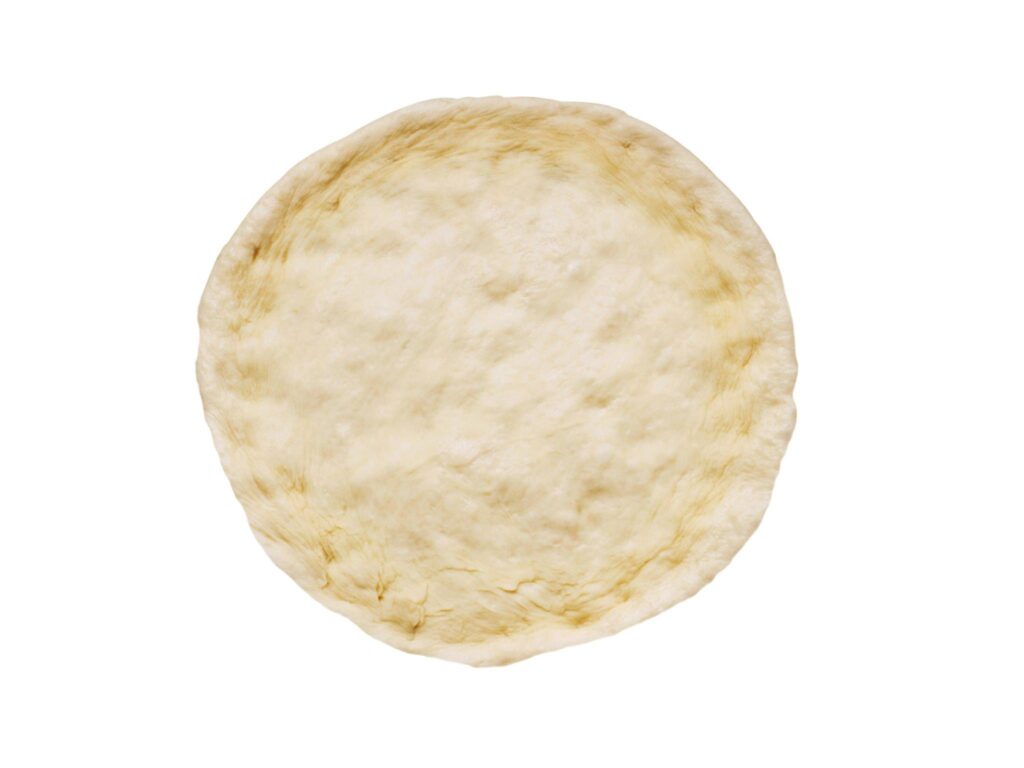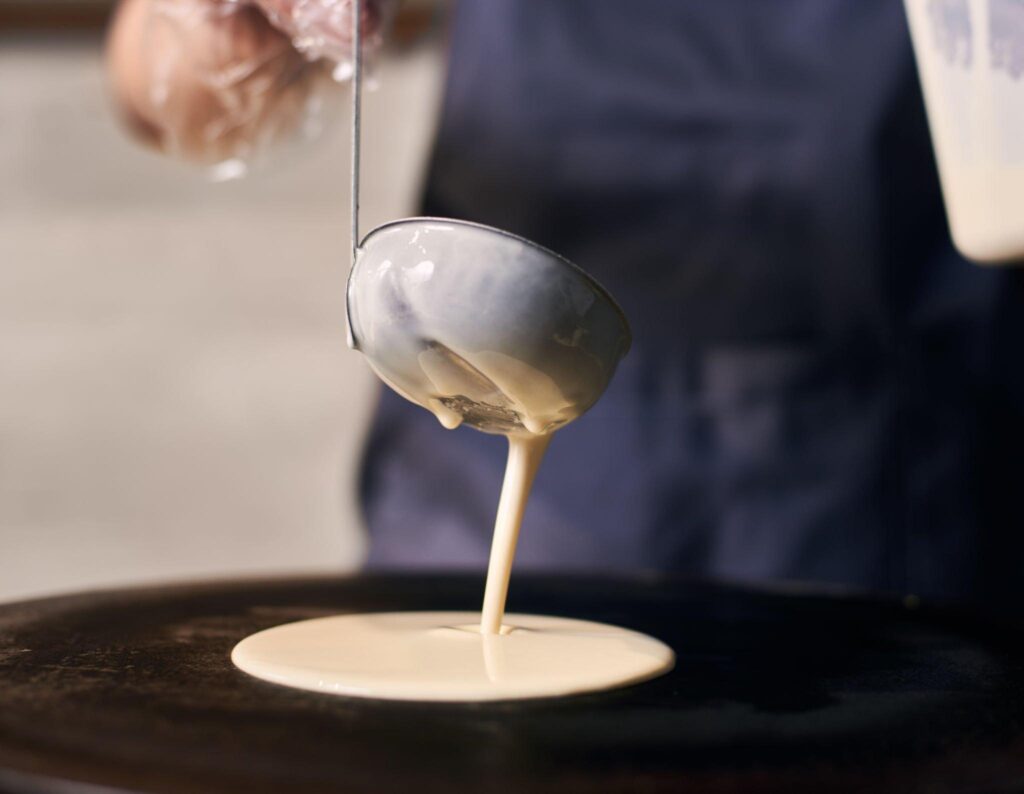Introduction
For pizza lovers and aspiring pizza makers, one question that often comes up is whether pizza dough should be refrigerated. This article will dive into the importance of dough management and explore the ongoing debate surrounding the refrigeration of pizza dough.
Why Is Dough Management Important?
Pizza dough management is crucial for maintaining the quality and freshness of your dough. Effective dough management improves texture, flavor, and pizza experience. Here are a few reasons why dough management should be a priority:
- Consistency: Proper dough management ensures that you can consistently produce high-quality pizzas, allowing you to deliver a consistent dining experience to your customers or enjoy the same delicious pizza at home.
- Time efficiency: By understanding the techniques and practices of dough management, you can streamline your pizza-making process and save time. This is particularly important for commercial pizza establishments with high demand.
The Debate: Should Pizza Dough Be Refrigerated Or Not?
The refrigeration of pizza dough has sparked a debate within the pizza-making community. Some argue that refrigeration is necessary for developing robust flavors and achieving better dough texture, while others believe that it is unnecessary and may even negatively impact the dough.
Proponents of refrigeration argue that it allows the dough to ferment slowly, resulting in improved taste and a more airy and light crust. Refrigeration also extends the dough’s shelf life, making it easier for businesses to manage bulk dough production.
On the other hand, opponents of refrigeration believe that the cold temperature slows down yeast activity, potentially affecting the dough’s rise and texture. They argue that room temperature fermentation allows the dough to develop more complex flavors and a better structure.
Ultimately, the decision of whether to refrigerate pizza dough or not depends on personal preference, specific recipe requirements, and the desired outcome of the dough. Experimentation and exploration of different techniques will help you discover what works best for your pizza-making endeavors.
In conclusion, dough management plays a vital role in achieving excellent pizza results. Whether you choose to refrigerate your pizza dough or not, proper understanding and practice of dough management techniques will enhance your pizza-making skills and ensure a delicious outcome.
Understanding Pizza Dough
For pizza lovers and aspiring home chefs, understanding the ins and outs of pizza dough is essential for creating the perfect homemade pies. One common question that often arises is whether pizza dough should be refrigerated. Let’s delve into the world of dough management to find out the answer.
Ingredients And Science Behind Making Pizza Dough
A combination of flour, water, yeast, salt, and sometimes sugar or olive oil is mixed together to make pizza dough. The yeast plays a crucial role in fermentation, causing the dough to rise and develop its flavorful texture. During fermentation, yeast consumes the sugars in the dough, releasing carbon dioxide gas, which creates air bubbles and makes the dough airy and light.
Different Types Of Pizza Dough
There are various types of pizza dough, each with its own characteristics. Traditional Italian pizza dough, known as Neapolitan dough, is made with just a few simple ingredients and requires a long fermentation process. This type of dough is best when baked at high temperatures for a short time, resulting in a thin and chewy crust.
New York-style pizza dough is slightly different, often incorporating olive oil and sugar. It is known for its slightly thicker and foldable crust. The dough is typically fermented at room temperature for a shorter duration.
Refrigerating pizza dough can be beneficial for certain types, such as dough that requires a prolonged fermentation process. Cold fermentation slows down the yeast activity, allowing flavors to develop over time and creating a more complex and tangy taste.
In conclusion, whether to refrigerate pizza dough or not depends on the type of dough and the desired characteristics. Understanding the science behind dough fermentation and experimenting with different techniques can help you achieve the perfect pizza crust with the desired texture and flavor.
Keeping Pizza Dough Fresh
Refrigeration Vs. Room Temperature: Pros And Cons
When it comes to storing pizza dough, one common debate is whether it should be refrigerated or kept at room temperature. Both methods have their pros and cons.
Refrigeration offers several advantages. Firstly, it slows down the fermentation process, allowing the dough to develop more flavor over time. It also extends the dough’s shelf life, making it possible to prepare larger quantities in advance. Additionally, refrigeration can make the dough easier to handle as it becomes firmer and less sticky.
On the other hand, room-temperature fermentation can yield a different set of benefits. Keeping the dough at room temperature allows it to ferment and rise naturally, resulting in a softer and more flavorful crust. This method is popular among pizza enthusiasts who prefer a traditional, artisanal taste. However, it does require more careful timing, as the dough can over-proof if left at room temperature for too long.
Factors Affecting Dough Freshness
Several factors can affect the freshness and quality of pizza dough. One key consideration is the type of yeast used. Different yeast varieties have different fermentation rates and temperature preferences, influencing how quickly the dough rises and stays fresh.
Another important factor is the dough’s hydration level. Higher hydration doughs tend to have a shorter shelf life as they are more prone to becoming sticky and developing off flavors. It’s crucial to strike a balance between hydration and shelf life when preparing pizza dough.
Additionally, the ingredients used in the dough can impact its freshness. Fresh and high-quality flour, as well as the use of natural sweeteners like honey or maple syrup, can enhance the dough’s flavor and keep it fresher for longer.
In conclusion, the decision to refrigerate or keep pizza dough at room temperature depends on personal preference and desired outcomes. Both methods have their advantages and considerations. Ultimately, it’s important to consider the specific characteristics of the dough, such as yeast type, hydration level, and ingredient quality, in order to keep it fresh and achieve the desired taste and texture.
Refrigerating Pizza Dough
How To Properly Refrigerate Pizza Dough?
One of the most common questions in pizza dough management is whether it should be refrigerated. The short answer is yes; refrigeration is recommended to keep your dough fresh and extend its shelf life. Refrigerating pizza dough slows down the fermentation process, preventing it from overproofing and becoming too puffy or sour.
Here are some steps to properly refrigerate your pizza dough:
- Prepare the dough: After mixing the dough ingredients, allow it to rise at room temperature for about an hour. This initial fermentation stage helps develop flavor and structure.
- Portion and shape the dough: Divide the dough into individual portions and shape them into balls. This makes it easier to handle when it’s time to make pizzas.
- Refrigerate the dough: Place the dough balls in airtight containers or tightly wrapped in plastic wrap. Make sure to leave enough room for the dough to expand as it rises slowly in the refrigerator.
- Use within a few days: Refrigerated pizza dough is best used within 2-3 days. After that, the dough quality may start to deteriorate, and it will become less airy and flavorful.
Tips For Extending Dough Shelf Life In The Refrigerator:
To maximize the shelf life of your pizza dough in the refrigerator, consider the following tips:
- Use cold water: When mixing the dough, use cold water instead of warm water. Cold water slows down yeast activity and fermentation.
- Store in the coldest part: Place the dough in the coldest part of your refrigerator, typically the back or bottom shelf.
- Check for proper sealing: Ensure that the containers or plastic wrap are tightly sealed to prevent the dough from drying out or absorbing odors from other foods.
- Don’t stack the dough: Avoid stacking the dough balls on top of each other, as it can create pressure points and lead to uneven rising.
By refrigerating your pizza dough and following these tips, you can maintain its freshness and enjoy delicious homemade pizzas whenever you desire.
Room Temperature Storage
For pizza enthusiasts and amateur bakers, the question of whether to refrigerate pizza dough can be a matter of heated debate. While refrigeration may seem like the obvious choice, storing pizza dough at room temperature can have its own benefits.
Benefits Of Storing Pizza Dough At Room Temperature
- Improved flavor and texture: Allowing the dough to ferment at room temperature for longer can enhance its flavor and develop a light and airy texture. This slow fermentation process allows the yeast to work its magic, resulting in a more flavorful and delicious crust.
- Time-saving convenience: Room temperature storage eliminates the need for thawing or waiting for the dough to come to room temperature before using it. This can be particularly helpful if you’re in a hurry or have unexpected guests.
Best Practices For Storing Dough Without Refrigeration
- Cover and protect: Wrap the dough tightly with plastic wrap to prevent drying out or forming a crust. Place it in a bowl or airtight container to protect it from contaminants.
- Store in a cool spot: Find a cool area in your kitchen where the dough won’t be exposed to direct sunlight or excessive heat. A pantry or cupboard away from appliances or windows works well.
- Use it promptly: Pizza dough stored at room temperature should be used within a few hours to prevent over-fermentation or potential spoiling. Be mindful of the expiration date of the dough if it was store-bought.
While storing pizza dough at room temperature offers its advantages, it’s essential to consider food safety guidelines and use your judgment. If you live in a hot and humid climate or need to store the dough for an extended period, refrigeration may be a safer option. Ultimately, the choice depends on your preferences and the circumstances.
Dough Management Techniques
Stretch And Fold Method
One of the most effective techniques for dough management is the stretch and fold method. This method involves stretching the dough to create tension and then folding it over itself several times. This technique helps to develop the gluten in the dough, resulting in a lighter and more elastic crust. It also helps evenly distribute the yeast and other ingredients throughout the dough.
Bulk Fermentation And Cold Fermentation
Another important aspect of dough management is fermentation. During fermentation, the yeast in the dough produces carbon dioxide, which creates air pockets and gives the dough its texture. There are two common fermentation techniques: bulk fermentation and cold fermentation.
Bulk fermentation: In bulk fermentation, the dough is allowed to rise at room temperature for a specific amount of time. This allows the yeast to work its magic and develop the flavors of the dough.
Cold fermentation: Cold fermentation involves placing the dough in the refrigerator to ferment slowly over a longer period of time. This technique helps enhance the dough’s flavor and texture, resulting in a more complex and delicious pizza crust.
So, should pizza dough be refrigerated? The answer depends on your preference and the time you have available. If you need to make pizza dough quickly, the stretch and fold method combined with a shorter bulk fermentation time can yield excellent results. However, if you have the time, opting for a cold fermentation can take your pizza crust to the next level in terms of flavor and texture.
In conclusion, proper dough management techniques, such as the stretch and fold method and choosing the right fermentation technique, can greatly improve the quality of your pizza crust. Experiment with different techniques and find what works best for you and your desired pizza dough outcome.
Factors Affecting Dough Freshness
When it comes to creating perfect, delicious pizza, the freshness of the dough is key. But should pizza dough be refrigerated? Let’s explore the factors that affect dough freshness and how to properly manage it to ensure the best pizza-making experience.
Humidity, Temperature, And Their Impact On Pizza Dough
Humidity and temperature play a crucial role in dough management. High humidity can make the dough sticky and hard to work with, while low humidity can cause it to dry out quickly. Temperature also affects dough fermentation.
For short-term storage (up to a few hours), keeping the dough at room temperature is usually safe. However, refrigeration is recommended if the dough is being stored for a longer period. This slows down the fermentation process and helps maintain freshness.
When refrigerating pizza dough, make sure it is properly sealed in an airtight container or wrapped tightly in plastic wrap. This prevents the dough from drying out or absorbing any unpleasant odors from the refrigerator.
Understanding The Overproofed Dough
Overproofed dough is dough that has been left to rise for too long, causing it to lose its structure and become flat and dense. This can happen if the dough is left at room temperature for too long or if the fermentation process is not properly controlled.
To prevent overproofing, monitoring the dough closely during the rising process is important. Depending on the recipe and ambient temperature, the dough should be checked periodically to ensure it is rising at the desired rate. If the dough has risen too much, it can be punched down and reshaped before baking.
In conclusion, proper dough management is essential for maintaining the freshness and quality of pizza dough. By considering factors like humidity, temperature, and fermentation time, you can ensure that your dough is just right for creating the perfect pizza every time.
Common Mistakes To Avoid
Avoiding Excessive Refrigeration
Refrigerating pizza dough is a common practice to keep it fresh and prevent it from spoiling. However, excessive refrigeration can have negative effects on the dough, leading to a subpar pizza crust.
It is important to note that refrigeration slows down the dough’s natural fermentation and yeast activity. While this can help in preserving the dough for a longer period, leaving it in the refrigerator for too long can result in an over-fermented and gassy dough. This can lead to a crust that is too airy, lacking structure, and possibly sour taste.
To avoid excessive refrigeration, it is recommended to refrigerate the dough for a maximum of 2-3 days. This timeframe allows for the dough to develop flavor and improve texture without compromising its quality.
Don’t Let Dough Sit At Room Temperature For Too Long
On the other hand, leaving pizza dough at room temperature for an extended period can also affect its quality. The dough can become too warm, leading to accelerated yeast activity and over-proofing. This can result in a dough that is difficult to shape, too elastic, and lacking in flavor.
It is best to keep the dough at room temperature for a short period, typically around 1-2 hours before using it. This allows the dough to relax and become more pliable, making it easier to work with. If you need to keep the dough longer, it is recommended to refrigerate it rather than leave it at room temperature.
By avoiding excessive refrigeration and not letting the dough sit at room temperature for too long, you can ensure that your pizza dough remains fresh and of high quality, leading to a delicious and satisfying pizza experience.
Conclusion
There isn’t a one-size-fits-all answer when it comes to keeping pizza dough fresh. The best approach will depend on your specific needs and preferences. Understanding the benefits and drawbacks of different dough management techniques, including refrigeration, is important.
The Best Approach For Keeping Pizza Dough Fresh
For most home cooks and small pizzerias, refrigeration is the most convenient and practical method to keep pizza dough fresh. Placing the dough in the refrigerator can slow down the fermentation process and extend its shelf life. This allows you to prepare dough in advance and have it ready whenever you need it. Just make sure to store it in an airtight container or tightly wrapped in plastic wrap to prevent drying out.
Finding The Right Dough Management Technique For Your Needs
If you prefer a different method or have specific requirements, there are alternative dough management techniques that you can explore. Some pizzaiolos swear by room-temperature fermentation, while others use a combination of refrigeration and freezing. Experimentation and practice will help you find the technique that yields the best results for your taste preferences and production capabilities.
Answering The Question: Should Pizza Dough Be Refrigerated Or Not?
In general, refrigerating pizza dough is recommended for most situations. However, it’s important to note that different dough recipes and individual preferences may vary. Some pizza makers argue that room-temperature fermentation or freezing can enhance the flavor and texture of the crust. Ultimately, it comes down to personal experimentation and finding the method that works best for you.
No matter which dough management technique you choose, remember to handle the dough with care, use quality ingredients, and give it enough time to rise and develop flavor. With the right approach, you’ll be able to enjoy delicious homemade pizza with fresh and flavorful dough.
FAQ: Should Pizza Dough Be Refrigerated? – Dough Management: Keeping Pizza Dough Fresh
Q: Should pizza dough be refrigerated?
A: Yes, refrigerating pizza dough is a common practice and can help maintain its freshness for longer.
Q: How does refrigerating pizza dough help?
A: Refrigeration slows down the yeast fermentation process in pizza dough, which allows it to develop more flavor and texture. It also helps prevent overproofing, which can result in a flat and dense crust.
Q: For how long can pizza dough be refrigerated?
A: Pizza dough can typically be refrigerated for up to 72 hours. After this time, the dough may start to lose its quality and become less desirable for making pizzas.
Q: Should pizza dough be refrigerated immediately after making it?
A: It is not necessary to refrigerate pizza dough immediately after making it, but it can be refrigerated if you don’t plan to use it within a few hours. Letting the dough rise at room temperature for a couple of hours before refrigeration helps it develop flavor.
Q: What is the best way to store pizza dough in the refrigerator?
A: To store pizza dough in the refrigerator, first, mold it into a smooth ball and lightly coat it in olive oil to prevent sticking. Place it in a covered container or wrap it tightly in plastic wrap to avoid drying out.
Q: Can pizza dough be frozen instead of refrigerated?
A: Yes, pizza dough can be frozen if you’d like to store it for a longer period. Before freezing, divide the dough into individual portions, wrap each portion tightly in plastic wrap, and place them in a resealable freezer bag. Frozen pizza dough can be kept for up to three months.
Q: Can refrigerated pizza dough be used immediately after taking it out of the fridge?
A: Refrigerated pizza dough can be used immediately after being removed from the fridge. However, it is best to let it rest at room temperature for about 30 minutes before shaping and baking to allow it to relax and stretch more easily.
Q: How can I know if refrigerated pizza dough has gone bad?
A: If the refrigerated pizza dough has a sour smell, a slimy texture, or shows signs of mold, it has likely gone bad and should not be used. It’s important to rely on your senses and use your judgment in such cases.
Q: Can I use leftover refrigerated pizza dough for something else besides pizza?
A: Leftover refrigerated pizza dough can be used for various purposes. You can make breadsticks, calzones, garlic knots, or even cinnamon rolls with it. The possibilities are endless!
In summary, refrigerating pizza dough is a great way to prolong its freshness, enhance its flavor, and have it ready for use when needed. Just make sure to store it properly and pay attention to any signs of spoilage.

Looking for delicious pizza and authentic Italian cuisine? Look no further than Claudia R. Diaz at Joe’s NY Pizza in Tonawanda! Our menu features a wide variety of classic dishes and innovative creations, all made with the freshest ingredients and prepared with the utmost care. Whether you’re in the mood for a traditional Margherita pizza or something a little more adventurous, like our Buffalo chicken pizza or shrimp scampi pasta, Claudia R. Diaz has something to satisfy every craving. So why wait? Visit us today and experience the best Italian food in Tonawanda! #ClaudiaRDiaz #JoesNYPizzaTonawanda #ItalianFood #PizzaLovers #FoodiesUnite



